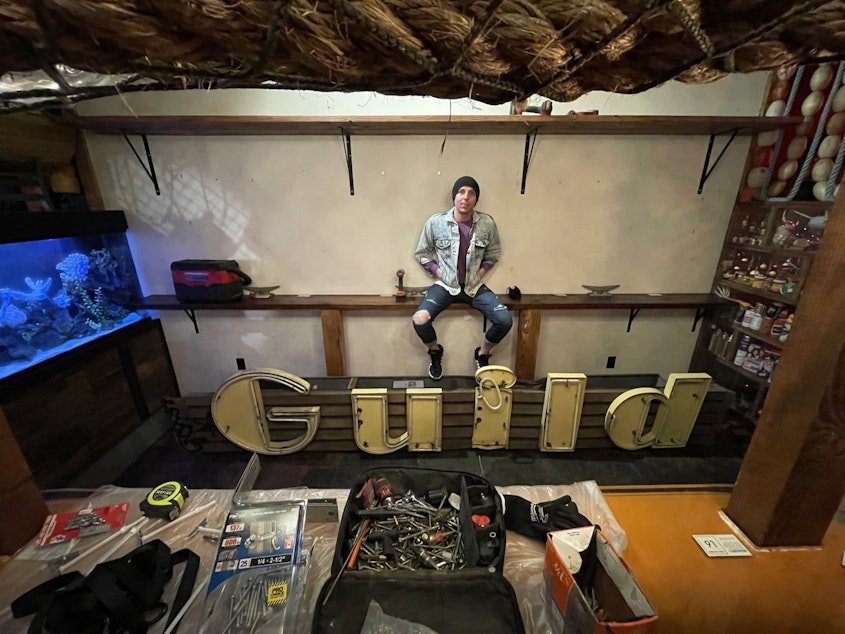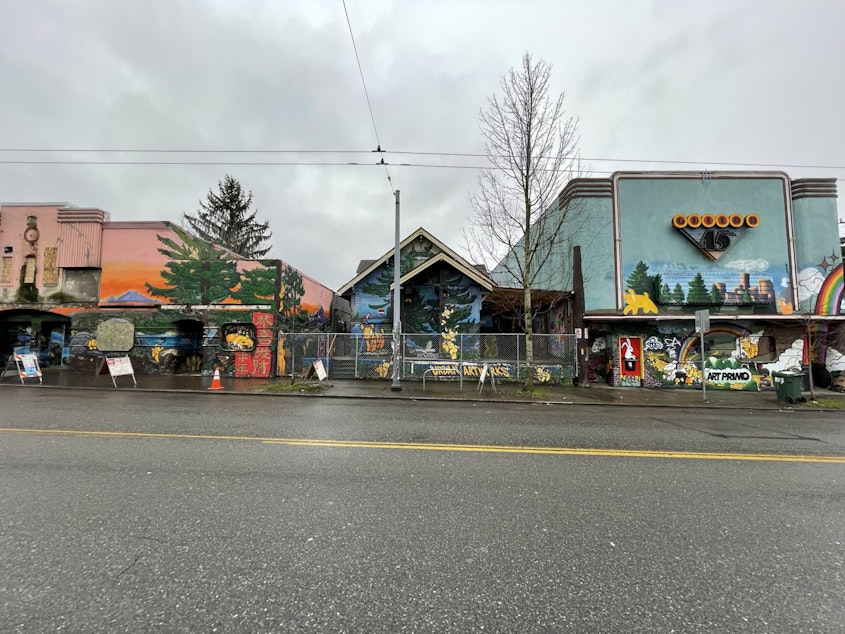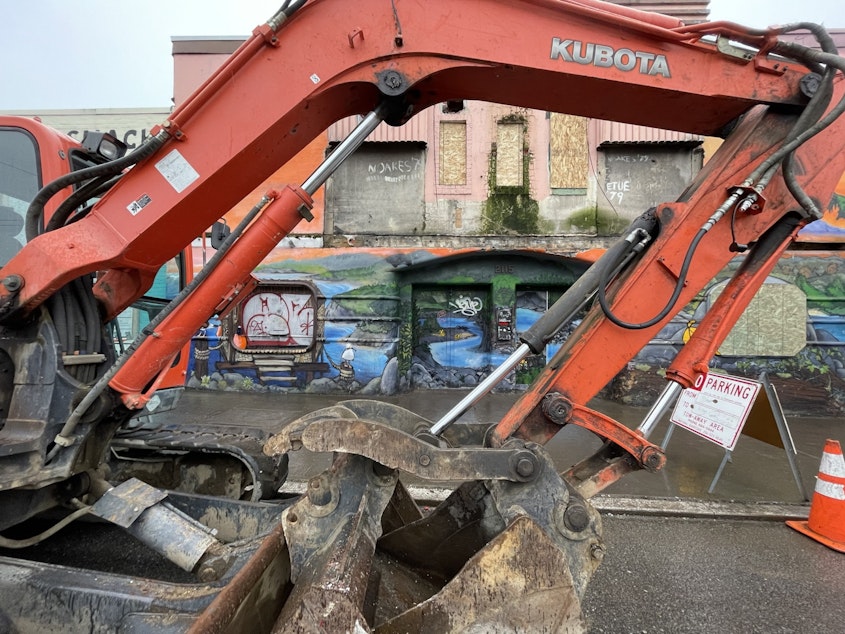Seattle's Guild 45th theater unlikely to reopen. Its remnants are already becoming bar flair.

Hearing demolition work underway, the owner of Seattle's Octopus Bar quickly ran outside to ask contractors to spare a piece of the old Guild 45th theater sign for him.
The historic Guild 45th Theater closed in 2017. After the demolition of its historic marquee this week, many neighbors are concluding it will probably never reopen.
The Guild was a funky old theater that occupied several properties on Wallingford’s main street. Its two screens were separated by a house in the middle. The last occupant of the house-between-the-screens was the Octopus Bar. The bar has since moved to another space on the same block, but the bar’s owner, Trevor Marsh, has felt a connection with the theater for a long time.
So when he heard a crunching sound, he ran outside and saw a big piece of construction equipment tearing off the old sign that used to advertise movies.
When the workers paused, he asked them to save a piece of it for him.
Sponsored
“So now we’re putting it up in the bar, we’re gonna give it a new home. But yeah, we have the remaining piece of what was a really classic marquee.”
During the pandemic, Marsh and his coworkers have spent their downtime renovating the bar, slowly adding salvaged items to its décor. The Guild marquee fragment joins the "O" from the old Bon Marche building and hundreds of feet of fishing net buoys. Behind the Guild sign will be a pink wall, an unforgettable salmon hue that helped the old theater stand out.
Marsh said among the Octopus staff is one woman who had her first date there.
The Guild 45th was built a hundred years ago along the trolley line that once ran through Wallingford. It was part of a wave of small theaters that sprang up in Seattle neighborhoods as Hollywood’s influence rose.
Later, it gained a second life as a jewel in the crown of the Seven Gables company, which revived many old Seattle theaters as outlets for independent and artistic films. Those efforts helped turn Seattle into the cinema-loving town it is today.
Sponsored
In the 1980s the theater added its second screen at a different address down the block. This unlikely arrangement resulted in misunderstandings. I personally remember buying a ticket, then trying to enter what appeared to be the main entrance, only to be told to head down the block, past a house, to find the second screen.

Landmark Theaters eventually bought Seven Gables and continued the indie tradition for awhile, before it was bought by another company that eventually closed many of Landmark's theaters.
When the Guild 45th finally closed in 2017, it marked the end of a David and Goliath story in which small theaters held their own for decades, sometimes by going to court, against much more powerful theater chains that allegedly locked the little operators out of big lucrative releases ("allegedly" because the lawsuit ended in a settlement).
Since the Guild 45th closed, Wallingford neighbors like Linda Corbus have held out hope that the theater could reopen.
Sponsored
"It was always very busy when it was a theater. So I think they would have the financial support of the neighborhood,” she said while visiting the site to see the building without its marquee.
The theater’s owners didn’t respond to requests for comment from KUOW. But Marsh filled in some details about the theater. He says that about five years ago, the owners looked into renovating the theater, and were told it would cost $8-12 million. Putting that kind of money into the building would have taken deep pockets and a strong sense of charity, Marsh said.
During the theater's long closure, not only have construction costs have risen dramatically, Marsh said, but the theater has decayed beyond repair.
“It’s horrible inside," he said. "There’s been squatters, there’s been fires. At the end of the day, that property is too far gone.”

Sponsored
Seattle’s building department says the owners have begun paperwork to tear down part of the theater, including the 1980s annex and the house-between-the-screens. And while no paperwork has been filed yet to demolish the older part of the theater, developers generally benefit from consolidating adjacent properties into one larger development.
So the preservation of a portion of the theater seems unlikely. The property is zoned for five story development with restaurants and shops on the street level.




